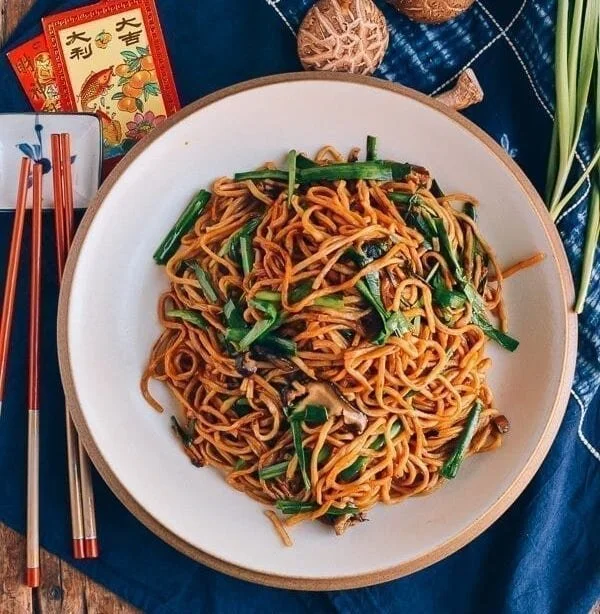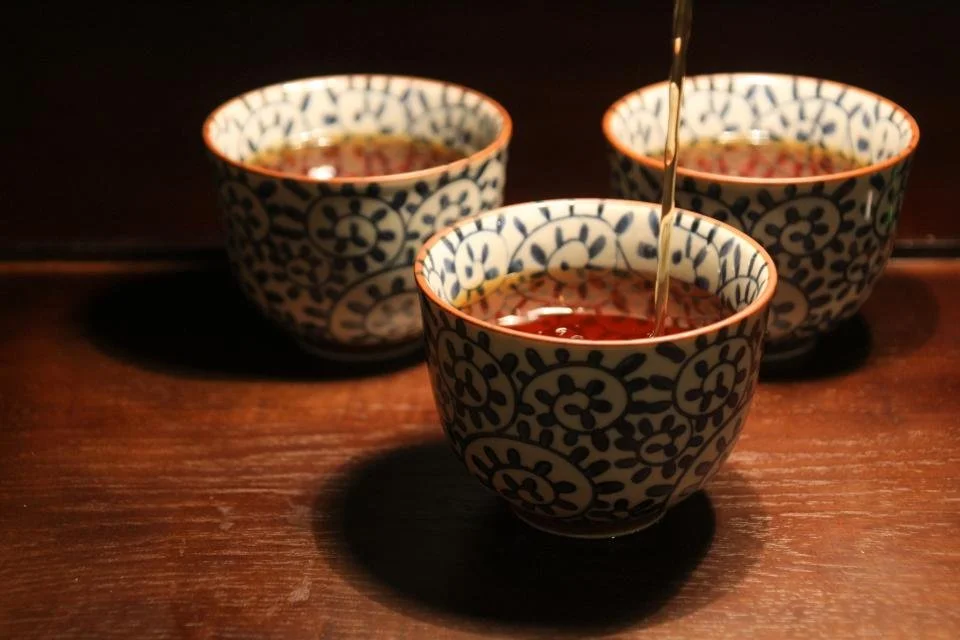A Culinary Celebration of the Hungry Ghost Festival: Plus 3 Delightful Dishes to Feed You, or Your Ancestors
In the rich tapestry of Chinese holidays, one stands out as a unique blend of the spiritual and the scrumptious – the Hungry Ghost Festival. While many festivities revolve around food, during this special occasion, culinary offerings take center stage, not just to satisfy earthly appetites but to appease the restless spirits of our ancestors. In this gastronomic journey, we'll delve into what makes the Hungry Ghost Festival truly special, explore the delectable offerings, and uncover the deeper significance that transcends the boundaries of the living and the departed.
What is the Hungry Ghost Festival?
Picture this: the gates of hell swing open, and the hungry spirits of our ancestors roam the Earth in search of food, merriment, and worldly pleasures. This Taoist and Buddhist tradition, celebrated on the 14th or 15th day of the seventh month in the Chinese Calendar, beckons families to make offerings of food, money, and entertainment. These offerings serve as a heartfelt tribute to ancestors who may have departed without a proper send-off. It's a way to soothe their suffering and placate their souls.
Preparing for the Hungry Ghost Festival: A Week of Anticipation
Preparing for the Hungry Ghost Festival isn't something you do in a hurry. To avoid inviting bad luck into your home, it's best to start at least a week ahead of the ghost-feeding festivities. Here's how:
1. Fold Your Joss Paper: Craft intricate shapes resembling gold ingots, houses, electronics, and more from joss paper and hell bank notes. Burning these offerings during the festival is believed to grant the spirits the same wealth in the afterlife as they had in the material world.
2. Create a Floating Lantern: Just as you give the spirits a proper welcome, you should bid them farewell fittingly. On the final night of the Ghost Festival, send wandering spirits back to the underworld by releasing lotus-shaped paper lanterns down a serene river.
3. Plan the Family Dinner: No Chinese holiday is complete without a sumptuous family dinner. Rather than extravagant dishes, opt for simple, nourishing meals. You're feeding your hungry ancestors, so prepare their favorite dishes. It's also a wonderful opportunity to revive cherished family recipes, with vegetarian options in line with Buddhist traditions. And don't forget to leave a seat or two at the table for your beloved departed relatives.
What to Offer During the Hungry Ghost Festival:
A Feast for the Senses Creating an altar of offerings before or on the night of the Ghost Festival is a cherished tradition. After enjoying a hearty dinner with your family and ancestral spirits, there are orphan spirits who wander by your homes, in search of nourishment.
What to offer:
Make It Three: Tradition calls for three bowls of rice, three sets of chopsticks, and three cups of Chinese tea. These symbolize the realms of heaven, earth, and the underworld. Other offerings range from peanuts, candy, and raw noodles to unpeeled fruits and uncut meats. Tea and rice wine are customary drink offerings.
Stay Consistent: Whether it's fish, pork, or no meat at all, consistency is key. Imagine being a spirit, eagerly awaiting your favorite meal, only to find it changed. Spirits might hold grudges too, so stick to the same dishes each year. Your ancestors will surely appreciate the familiarity.
Favorite Foods of the Deceased: It shouldn’t be surprising that the dead may retain the preferences they had when they were alive. If your ancestors, for example, spent their living days eating Hokkien and Cantonese dishes, then it would be common to prepare dishes from those cuisines. Likewise, if your departed relatives were vegetarians, it would be disrespectful to serve them any meat. Basically, serve up what you think is familiar and comforting to them. That thought alone goes a long way.
Invite Good Luck: Much like Chinese New Year, Ghost Festival food offerings are designed to bring luck to the living. For instance, noodles symbolize a long and well-lived life, pineapple invites luck, and Chinese lettuce represents prosperity. And let's not forget the delightful huat kuih, a steamed pastry shaped like a flower that symbolizes prosperity, a fitting tribute to spirits seeking good fortune.
Small Snacks for the Orphaned Souls: Some souls are simply passing by or no longer have families to care for them. In this case, it would be a nice gesture to set up a small altar for them along the side of the road, too. Traditionally, some snacks that you can provide would be uncooked rice, peanuts, raw noodles, fruits, candies, tea, and rice wine. If you want to put in the extra effort, then a couple of vegetable dishes would also not go amiss.
What Happens Next? A Farewell to Content Spirits
After the dinner and the ghost-feeding ceremony outside your homes, the Hungry Ghost Festival culminates in the burning of joss paper and the release of paper lanterns into the river. It's a beautiful and poignant farewell gesture to the spirits, hoping they depart content and fulfilled.
In conclusion, while the Hungry Ghost Festival may have earned the moniker "Chinese Halloween" due to its spectral associations, it is, in reality, a wholesome family affair. It's a time for children to learn about compassion for the needy, gratitude for what they have in the living world, and the enduring importance of family ties. While it may feel like a grand dinner party with invisible guests, this special holiday is a celebration of life as much as it is a tribute to the departed. So, this Hungry Ghost Festival, as you prepare your offerings, remember that you are nourishing not just spirits but the enduring bonds of family and tradition.
Hungry For More?
Check out these recipes I’ve curated to satisfy your soul!




